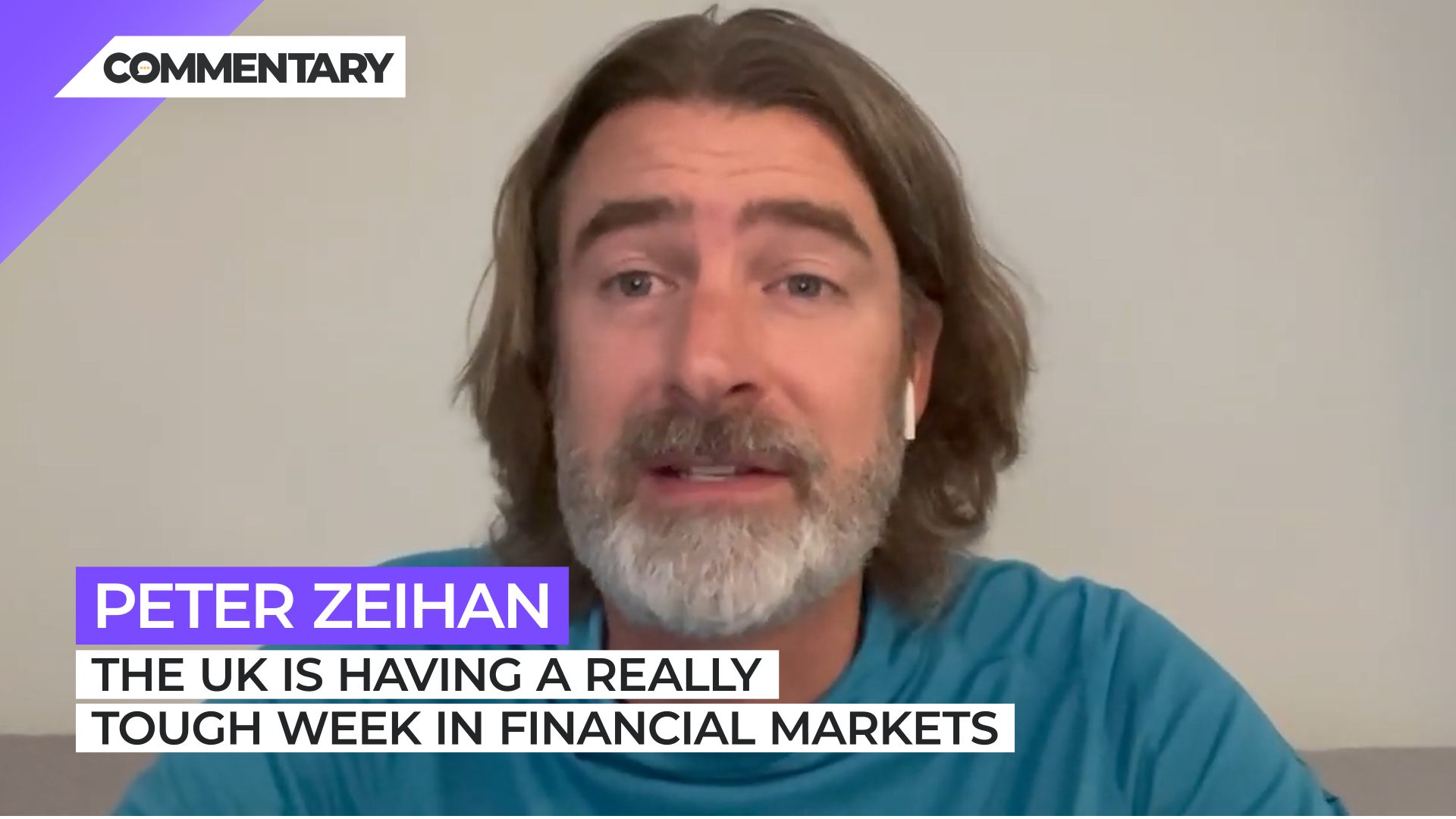
Commentary
-
Our commentary partners will help you reach your own conclusions on complex topics.
Hey everyone. Peter Zeihan here, coming to you from Birmingham, Alabama…You may have noticed that in the financial markets the United Kingdom is having a really, really tough week. The approximate issue is that the new government under Liz Truss released a short-term budget that the markets really did not like. And everyone seems to be piling on and punishing Britain in any way they possibly can. The pound has dropped precipitously and it’s entirely possible that it’s gonna be at parity with the U.S. dollar in the not-too distant future. And by not-too distant future, I mean possibly days. This is all wrapped up in some of the historical legacy stuff that the Brits are dealing with and failing to deal with.
So compared to New York…so New York is a financial hub because it was within the United States system. The U.S. is the largest economy in the world and going back to the 1940s, the U.S. dollar became the global currency. And since New York was already the primary financial center for the United States, it then became the primary functional center for the world. To a degree, this is how things started in England as well. They were the heart of a global empire, a trading empire. But the real issue was that when the industrial revolution happened, it happened in Britain first. So for 150 years, the Brits literally brought guns to knife fights the world over and built the greatest empire in human history, which was also a trading empire. And London was the nerve center of all of that. So it was a global financial hub.
But the empire collapsed over the course of the world wars. And at the end of World War II, the U.S. dollar took over. So the fifties and the sixties were a really rough time to be in London because everything just kept getting downsized and downsized and downsized. But then in 1973, the United Kingdom joined the EU, and since it was still the largest financial center of all of the European countries, it became the de facto financial center for all of Europe. And it was almost like the Brits got a second empire – until they left with Brexit five years ago.
What’s happening now is that the markets to this point have been incredibly kind to the UK because the UK hasn’t figured out what Brexit means. They haven’t figured out how to move on. They don’t have a functional deal for finance with the European Union. They haven’t gotten a deal with the United States. And there are a lot of secondary financial hubs that have boiled up around the world. Places like Dubai for example. If you’re going to invest and have a complete lack of morals, that’s where you go rather than going to London. And so London no longer has a net to spread and that is forcing a very different sort of situation on the country.
So this market route is nowhere close to being over because we’re finally seeing, five years on, because the Brits have been unable to figure out what’s next, that the markets are starting to finally treat Britain as what it has always loathed: A middle power.
And in that sort of situation, the amount of financial drainage that’s gonna come from the system is just absolutely mammoth. So unless the Truss government or its successor is able to hammer out some sort of post-European Union trade system with someone, we are only at the very beginning of a very long road down. Okay, that’s it for me. Until next time.
-
Hurricane Helene hits US coast, Appalachia and beyond
Hurricane Helene hit Florida and Georgia overnight between Sept. 26 and 27 as a Category 4 hurricane, and accompanying storms will continue reaching deeper into the continental United States today. Dangerous flash flooding from the hurricane, known as storm surge, was some of the worst flooding that the Tampa Bay area has ever seen, and… -
Israel holds upper hand against Lebanon, Hezbollah and Iran
On Wednesday, Sept. 25, Hezbollah launched a ballistic missile at Tel Aviv in retaliation for Israel’s explosive pager attack that blew up devices across Lebanon. Although Israel’s defense systems intercepted the surface-to-surface missile, the attempted strike on Tel Aviv marked a significant escalation by Hezbollah. Since the siege on Gaza began, shortly after the Oct. 7, 2023,… -
The Sinaloa Cartel civil war
Fears of a civil war within the Sinaloa Cartel are growing as violence between competing factions within the cartel continues. The Mexican Army has dispatched around 600 elite troops to Sinaloa to help quell those fears, in addition to roughly 2,200 regular soldiers and National Guard. Watch the above video as Straight Arrow News contributor… -
New Ukrainian weapons hit Russia where it hurts
Ukrainian drones struck a major Russian ammunition depot, triggering a massive explosion that was captured on camera. According to the Ukrainian military, 2,000 tons of munitions had arrived at the depot before the attack. Over the past two years, Ukraine has significantly increased its domestic drone production, allowing it to scale up attacks on military… -
Weighing social costs vs. economic benefits on immigration
Global human migration is one of the defining elements of our current historical era, according to the United Nations. Migrants face both the incentives to leave — forced out by climate change, crime and corruption, extreme poverty or violence — and incentives for where to go, based on available job opportunities and so on. Migration…
Latest Stories
-
 Getty Images
Getty Images
Potential top seeds still making their case for NCAA tournament committee
-
 Getty Images
Getty Images
DOD identifies $80 million in diversity and climate spending
-
 Getty Images
Getty Images
Severe weather threatens Mardi Gras celebrations in New Orleans
-
 Getty Images
Getty Images
MLB spring training: Mixed bag for National League teams 1 week in
-
 Getty Images
Getty Images
Illegal border crossing apprehensions plunge to 8,300 in February: Report
Popular Opinions
-
In addition to the facts, we believe it’s vital to hear perspectives from all sides of the political spectrum.
Latest Opinions
In addition to the facts, we believe it’s vital to hear perspectives from all sides of the political spectrum. We hope these different voices will help you reach your own conclusions.
The opinions published in this section are solely those of the contributors and do not reflect the views of Straight Arrow News.





















Latest Commentary
We know it is important to hear from a diverse range of observers on the complex topics we face and believe our commentary partners will help you reach your own conclusions.
The commentaries published in this section are solely those of the contributors and do not reflect the views of Straight Arrow News.
Dr. Frank Luntz
Pollster and Political Analyst‘Biased’: What Americans think of ‘mainstream media’
‘Getting rid of them’: Americans discuss Trump and immigration
‘Woke’: Why some Biden 2020 voters backed Trump in 2024